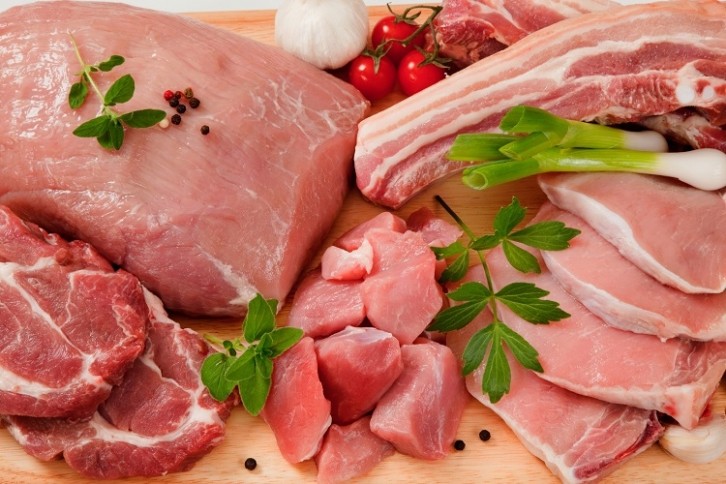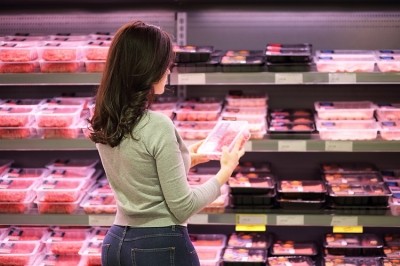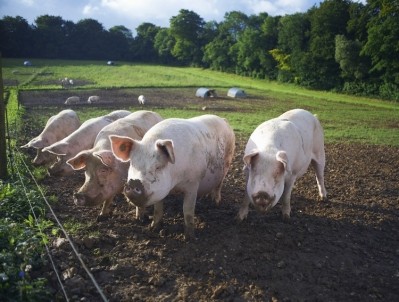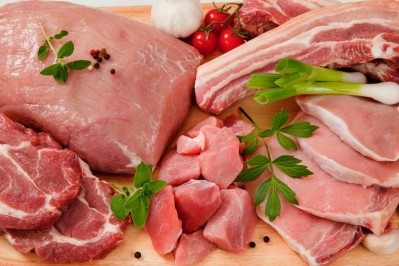Pork major Pilgrim’s UK cuts GHG emissions by 62.5%

Hailed as the UK’s lowest-cost, sustainable pig farming business, Pilgrim’s UK has released its first sustainability strategy progress report, setting out its eco-driven targets in more detail. Pilgrim’s UK has reduced its Scope 1 and 2 greenhouse gas (GHG) emissions by 62.5% compared to its 2019 baseline, the company stated. It has also lowered its Scopes 1, 2 and 3 emissions by 11%.
A leading provider of higher welfare pork, Pilgrim’s UK is responsible for operations across several hundred farms, eleven UK production sites, five fresh processing facilities and six added-value processing units. Spanning its entire business, Pilgrim’s UK report details its plan to deliver its 2030 Sustainability Strategy. In it, Pilgrim has pledged to reach net zero operations by 2030 and then across its complete supply chain by 2035.
Calls to lower emissions
Food systems are responsible for one-third of global GHG emissions, research has found. As such, global food businesses are under pressure to create positive, sustainable change and reduce their environmental impact.
The Scope 1 category refers to GHG emissions that a company directly makes, such as running its equipment. Scope 2 describes emissions a company makes indirectly, like electricity or energy to supply said equipment, and is produced on the company’s behalf. Pilgrim’s UK has reduced its GHG emissions by 62.5% compared to its 2019 emissions in these two categories.
Scope 3 is more complicated as it typically relates to the emissions associated with a company’s value chain that it becomes indirectly responsible for. “Emissions-wise, Scope 3 is nearly always the big one,” accounting company Deloitte reported.
Setting out its sustainability strategy
Pilgrim’s UK’s inaugural report outlines the business’ progress against its sustainability roadmap and strategy. Pilgrim’s UK’s 2030 Sustainability Strategy and its new report centre around its five core pillars: Sustainable farming, sustainable food production, sustainable packaging, sustainable people and community, and sustainable products.
“Pilgrim’s UK have completed a full Scope 1 & 2 net zero investment road map process to identify all known projects that could be implemented across our manufacturing sites, modelling for multiple different future operational scenarios, and then selecting an optimal investment roadmap for each site,” Matt Dight, Head of Sustainability at Pilgrim’s UK told FoodNavigator, answering what strategies it focuses on to reduce its Scope 1 and 2 emissions.
“From that, we’ve been making significant investments towards delivering net zero, having allocated £10 million [€11.62m] in capital investments to implement process innovations and operational improvements since 2022,” Dight added.
In the last year, Pilgrim's has focused on spending £10 million of its capital on operational and process improvements in its manufacturing and processing sites. Implementing what Pilgrim’s shared are “lean manufacturing processes” has helped lower its overall GHG emissions. Pilgrim’s UK has also expanded its onsite solar PV generation to four more sites, with plans for further expansion in 2024.
Introducing untested ideas
“One of the primary challenges we face is that our own 2035 net zero pledge is ahead of the rest of our sector; therefore, we are having to lead the way and bridge the gap in some of the knowledge gaps and with implementing untested concepts and interventions,” said Dight, on the hurdles that Pilgrim anticipates facing in achieving its net-zero ambitions.
Pilgrim’s dedicated research and development (R&D) trials farm is one example of its sustainability efforts, which it uses to help its teams test and refine changes to its farming systems before implementing them at scale across its farming base. The company’s various projects primarily focus on feed, genetics, animal welfare, and general on-farm performance improvements.
A member of the UK Soy Manifesto, lowering soy inclusion levels has been a core part of Pilgrim’s sustainable focus over the past ten years. “We have significantly reduced the GHG emissions associated with our livestock diets over the last decade by successfully reducing soy inclusion levels to an industry-leading level without impacting performance,” Dight said.
Promoting more responsible sourcing of soy and other deforestation-risk commodities is also an important aim of Pilgrim’s work. “We are committed to not just achieving our deforestation and conversion targets, but supporting a mass market move to verified deforestation and conversion-free soya in the UK,” Dight added.
Ahead of its 2035 goal, Pilgrim’s has also set numerous other targets to improve its environmental footprint. By 2025, the company pledges to use 100% recyclable or reusable packaging and source deforestation-risk commodities from Verified Deforestation and Conversion free areas. It aims to reduce water intensity by 50% by 2030 and also target 5% soya in pig diets.
Goals to reduce the food and farming sector’s impact
Today, Pilgrim works with over 1,000 British pig farmers, 450 of the UK’s leading independent lamb producers, and 2,500 Red Tractor Assured lamb producers. It is spearheading regenerative practices, using livestock to regenerate soil. Pilgrim has developed low GHG diet formulations, stating that its pork farm footprint is 2.53 Kg CO2e/ Kg live weight compared to the UK average of 4.68kg.
Pilgrim’s has achieved other sustainability goals, including sourcing 100% renewable electricity, obtaining cardboard from sustainable sources, and using plastic made from at least 30% recycled plastic in its packaging.
“We’re laser-focused on delivering our Pilgrim’s UK 2030 sustainability strategy, which is underpinned by a robust investment programme. While we’re proud of the progress we’ve made so far, we’ll never stop working to deliver our goal of being the most sustainable producer and supplier in the industry,” said Ivan Siqueira, President of Pilgrim’s UK.
“We’re determined to revolutionise the food supply chain, working with our retail and agriculture partners and industry stakeholders to reduce the impact of the food and farming sector,” Dight detailed. “To do that, it’s important we hold ourselves to account, and while our 2022 sustainability report may be the first step in our reporting journey, we’re always looking to improve and go further,” Dight added.
























